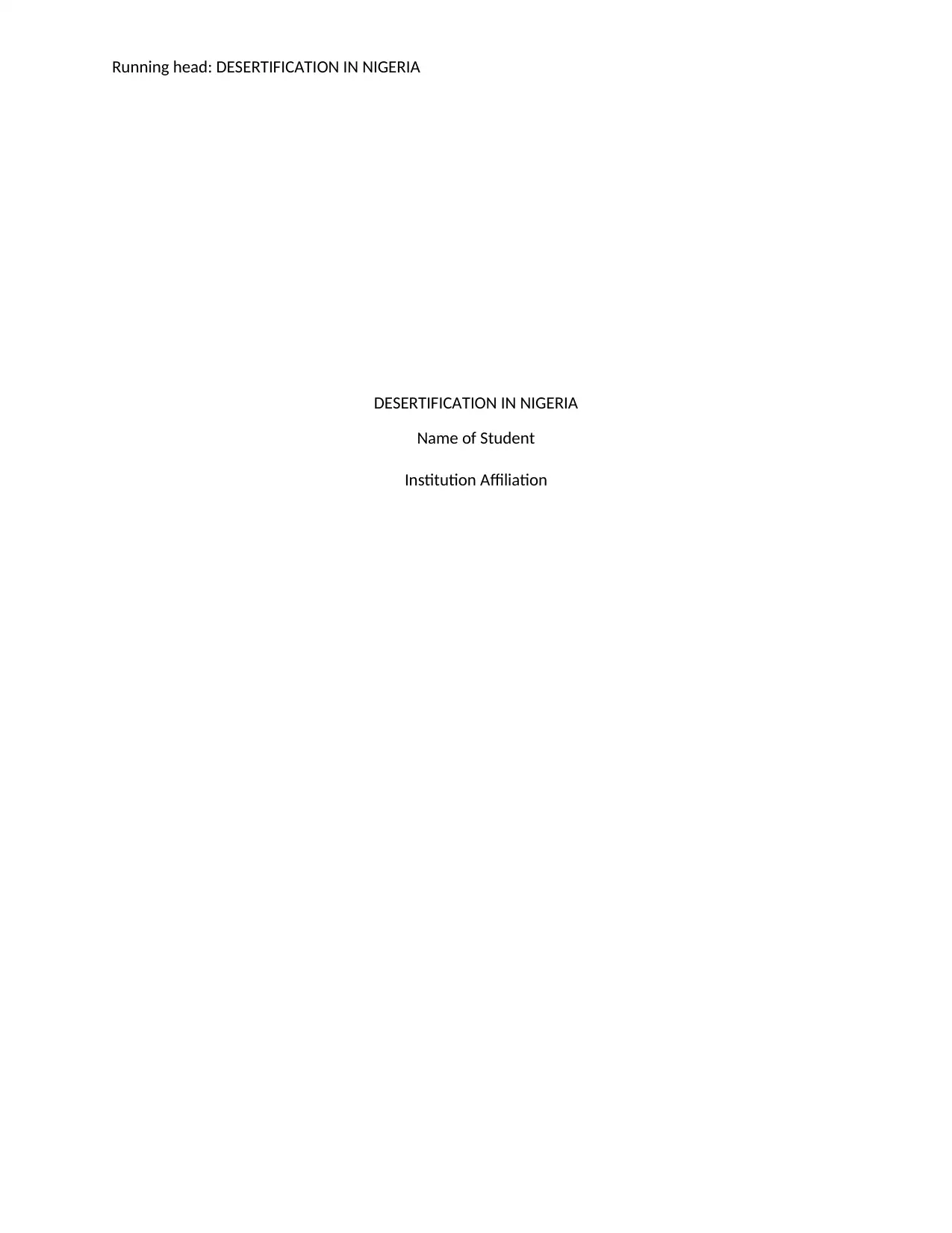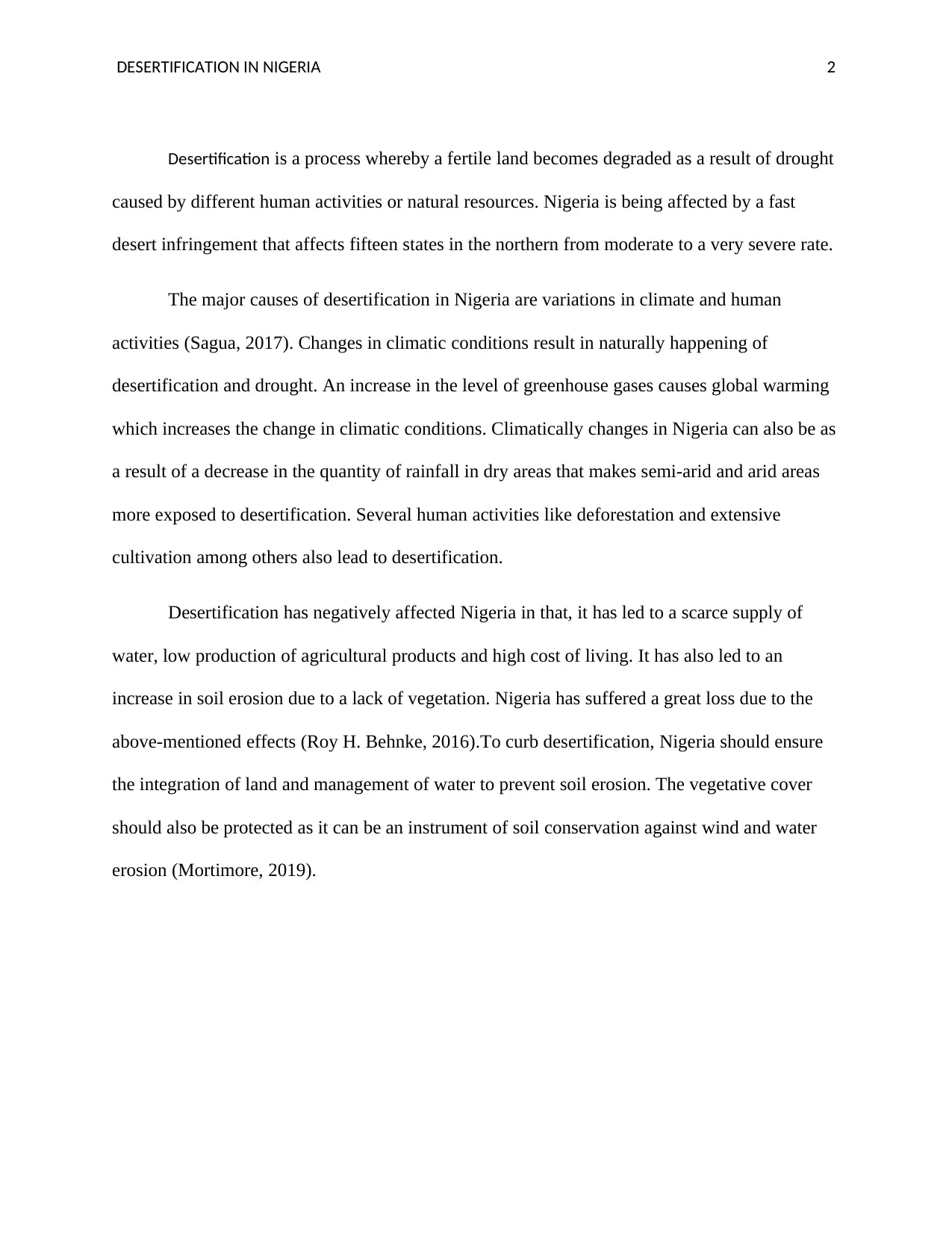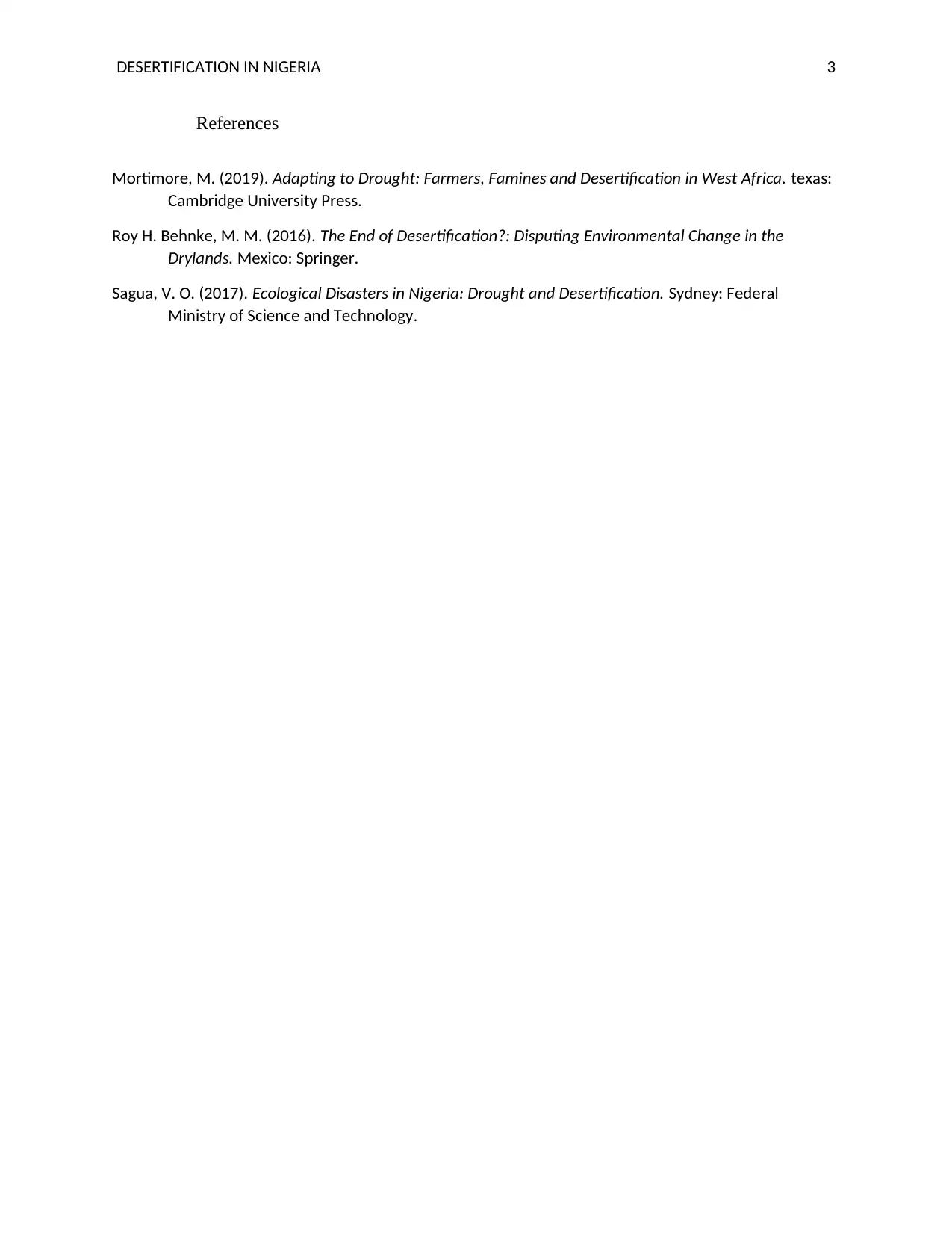Desertification in Nigeria: Causes, Effects, and Solutions
VerifiedAdded on 2022/08/19
|3
|357
|18
Report
AI Summary
This report examines the critical issue of desertification in Nigeria, a phenomenon exacerbated by climate change and human activities. It highlights the impact of desertification on the country, including decreased agricultural productivity, water scarcity, and increased soil erosion. The report also discusses the role of deforestation and other human activities in accelerating desertification. The report emphasizes the need for integrated land and water management strategies and the protection of vegetative cover to mitigate the effects of desertification and ensure environmental sustainability. The report references several sources including studies on drought, desertification, and ecological disasters in Nigeria, offering a comprehensive overview of the issue and potential solutions.
1 out of 3










![[object Object]](/_next/static/media/star-bottom.7253800d.svg)